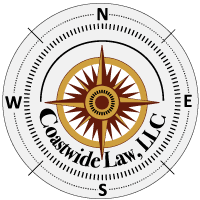Elder Law Attorney
“Elder Law” is a term that concerns an area of law that is designed to help and protect people as they age. It covers a variety of legal procedures including
Elder Law Attorney
A study by the National Committee for the Prevention of Elder Abuse at Virginia Tech states that older Americans lose $2.9 Billion per year to Elder Fraud. Most of the victims are women between 80 – 89 years of age. Sometimes the person committing the fraud is a relative or caregiver who convinces the older person to put their name on financial accounts so that they can help them with their money. Increasingly, the person committing the fraud is a person on the telephone who tells the older person that he or she has won a car or lottery, but must first send them money to cover the taxes or delivery of the prize. Everyone should watch for warning signs that an older loved one is being financially victimized. Watch for these signs:
- If one person is increasingly keeping the older loved one isolated from other family members; or
- If there are unusual or large financial transactions occurring that are not typical, or that are being conducted in cash; or
- If the older loved one is being secretive or someone is instructing that the older loved one should not tell anyone about his or her activities.
If you suspect that your older loved one is the victim of Elder Fraud, please give us a call immediately. I may recommend that you proceed with establishing a Conservatorship or
Conservatorship/Interdiction Attorney
If you have an older loved one, in addition to looking for signs of Elder Fraud, you should watch out for signs that your loved one has diminished mental capacity or has physical disabilities and would benefit by having a Conservatorship/Interdiction established for them to protect and care for their well-being.
In general, a person established as a Conservator/Curator has the responsibility to do the following:
- Collect the assets of the ward and take an inventory;
- Protect their property and make financial decisions for their benefit;
- Make necessary payments to provide for their care; and to
- Look out for their best interest, which may include making medical decisions for them.
The early warning signs that your loved one needs help include, but are not limited to, the following:
- The older loved one can no longer drive himself or herself in the car without getting lost;
- The older loved one gets stopped by the police for traffic violations such as going the wrong way down one-way streets;
- The older loved one has diminished mental capacity beyond just temporary forgetfulness;
- The older loved one can no longer prepare meals unassisted;
- The older loved one fails to take his or her medication as it is prescribed;
- The older loved one becomes unable to pay bills on time resulting in loss of electricity, etc.; or
- The older loved one makes bad financial decisions, such as falling prey to sweepstake scams described above or other unwise gifts, purchases, or investments.
Conservatorships / Interdiction are legal proceedings where another person is appointed over the person to help, usually by controlling their assets and/or medical decisions. If you notice any of the above signs, please contact us to discuss how you can help and protect your loved one.
Power of Attorney
People often request a legal document called a “Power of Attorney” (“POA”) where they name someone else to act on their behalf or they put someone else’s name on their financial accounts. We can draft a Power of Attorney, but I want to warn of a couple of dangers associated with putting someone’s name on your financial accounts or a POA document. First, if you put someone’s name on your account or give them the power to control your financial accounts in a POA, it is the same as giving that person ownership of the account. That person can do anything that you can do with your assets, including

